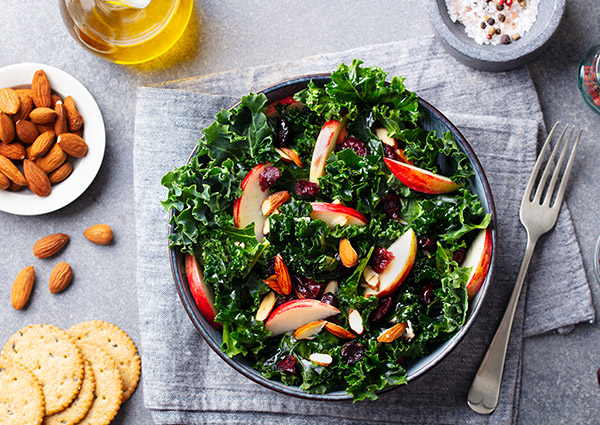
Supplements For a Plant-Based Diet
Plant-based eating is a healthy trend, but many wonder if they’re getting all the required nutrients. No diet is perfect, and there may be some deficiencies whether you’re a meat-and-potatoes traditionalist, a vegan/vegetarian, or somewhere in between.
When you can’t get everything needed from your diet, supplements can help.
Vitamin B12: This vitamin is responsible for processing protein, helping with red blood cell production and the nervous system.
Deficiency may cause anemia, infertility, bone or heart disease, and nervous system issues. Fatigue, brain fog, digestive/bowel problems, or even tingling sensations or paranoia are possible at serious depletion levels.
Vitamin B12 is in fortified cereals, plant milks, soy products and fortified nutritional yeast.
The recommended daily allowance or RDA is 2.4 mcg for adults.
If you think you’re deficient, you can take a supplement of 25- 100 mcg. A mouth spray version is available, too. Experts recommend those 51 and older take supplements, regardless of diet.
Vitamin D: Many people can’t get enough vitamin D through their diet and exposure to sunlight (a primary means of increasing vitamin D).
Vitamin D helps with calcium absorption, immune system, mood, memory and muscle recovery. If you’re especially low, you may experience brittle bones, depression and cardiovascular disease (CVD).
Foods rich in vitamin D include beef liver, fatty fish, egg yolks, dairy, cereals and fortified orange juice.
The RDA is 600 IUs and 800 IUs if you’re over 70. Advice on vitamin D supplementation varies widely, so consult your healthcare provider.
Omega-3s: While many plant-based diets feature foods rich with omega-3s, like flax, hemp and chia seeds, walnuts, and soybeans, and fatty fish, it still may not be enough.
Omega-3s help with brain development/health and may offer protection from inflammatory disease (including Alzheimer’s), and possibly reduce the risk of ADHD, depression and breast cancer. It regulates cholesterol and seems beneficial in CVD prevention.
The RDA is 1.6g for males and 1.1g for females. Supplements should be 1g of krill, fish or cod-liver oil type.
Iron: Iron is a crucial nutrient that produces red blood cells. Iron deficiency causes anemia, with symptoms like fatigue, weakness, pale skin, chest pain, headache, dizziness, cold hands and feet, brittle nails, sore tongue, and pica.
Since the main sources of dietary iron include meats, plant-based eaters may be lacking. Other iron-rich foods include dark, leafy greens, seafood, raisins, apricots, peas and iron-fortified cereals.
The RDA for iron is 8mg for men and women over 50, and 18m for younger women.
If you think you’re iron deficient, consult with your doctor about supplements, as too much iron can be toxic.




